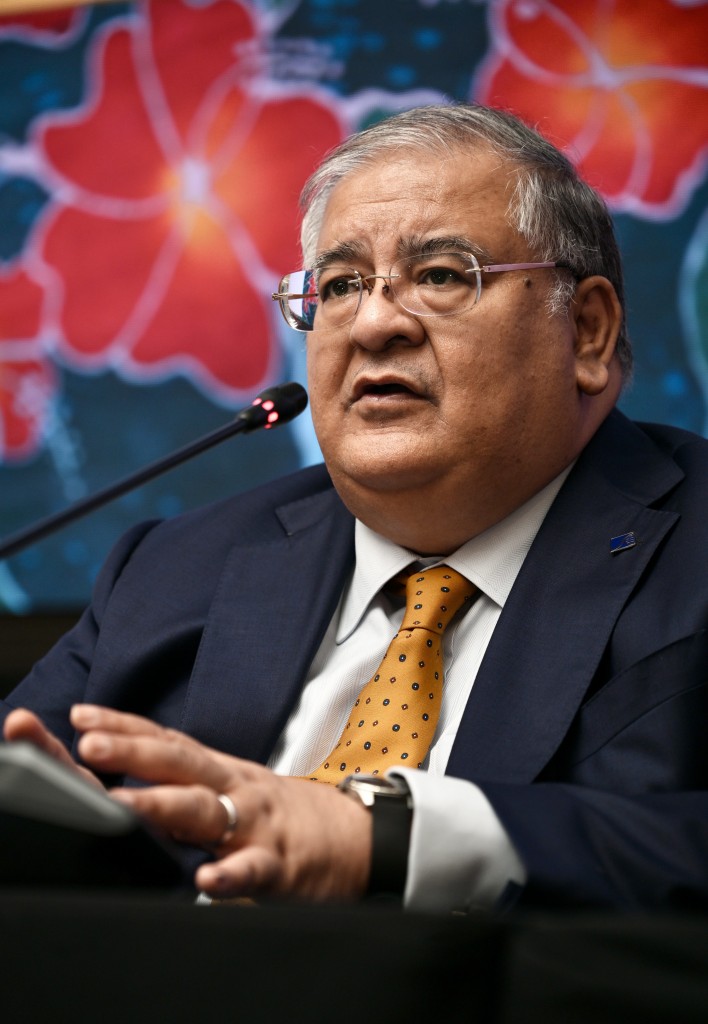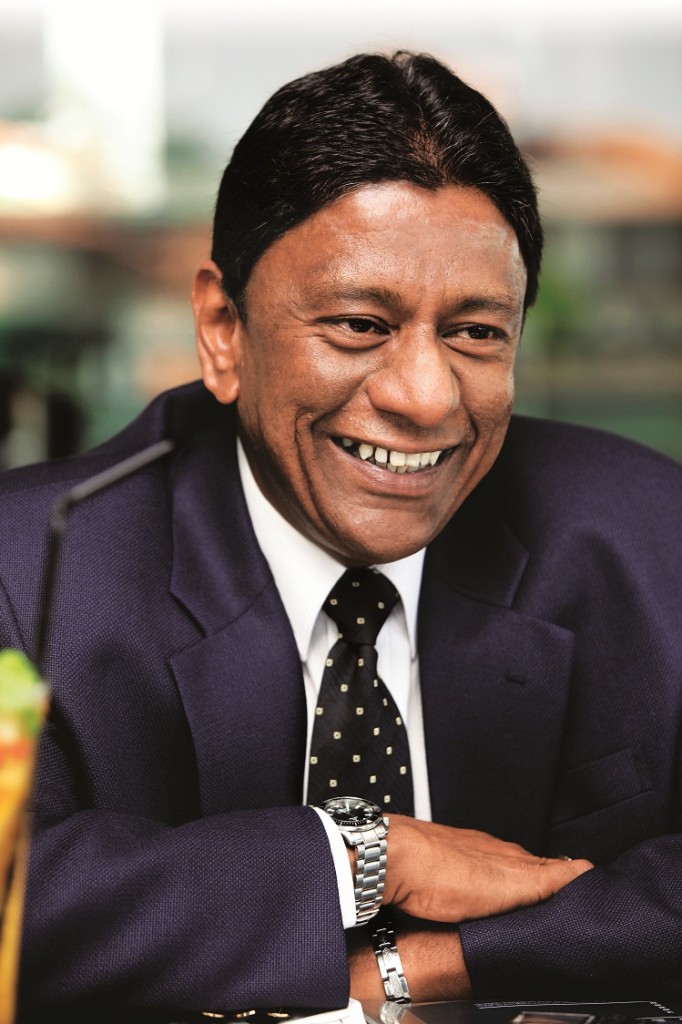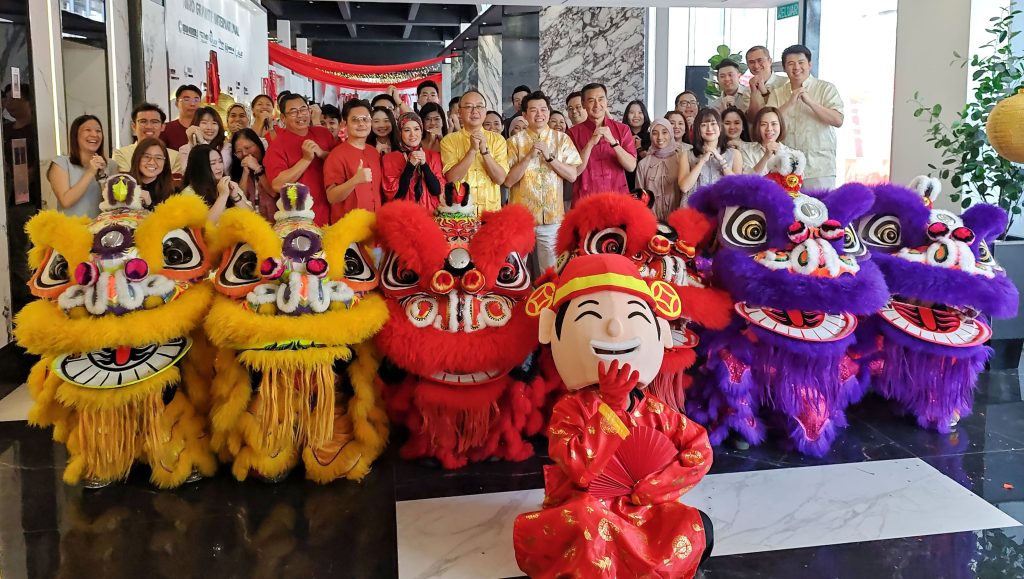
Forest City is being reimagined as a hub for a different class of investors. — THOMAS YONG/The Star
The mega project is being reimagined as a hub for ultra-high-net-worth families
by Syazwani Hasnizam
syazwani@thestar.com.my
When Malaysia unveiled the Johor-Singapore Special Economic Zone (JS-SEZ), much of the early attention centred around cross-border logistics, manufacturing and trade. But in recent months, a different class of investors has quietly begun moving in, specifically high-net-worth families, drawn by a new suite of incentives tailored to wealth preservation, legacy planning and long-term capital growth.
At the heart of this shift is Forest City, an ambitious luxury mega-project by Chinese real estate firm Country Garden Holdings Ltd. The development is a joint venture between Country Garden together with a Malaysian company, Esplanade Danga 88 Sdn Bhd. Once seen primarily as a residential and tourism project, the 7,000-acre Forest City is now emerging as the nexus for Malaysia’s efforts to attract global and regional family offices.
Laying the groundwork
The turning point came in September 2024, when the Malaysian government introduced a 0% concessionary tax rate on income generated by eligible investments from the single-family office vehicles (SFOV) operating in Forest City for a period of 20 years.
The incentive is part of a broader policy package to attract ultra-high-net-worth individuals and institutionalise wealth management practices within Malaysia. Under the scheme, spearheaded by the Ministry of Finance and administered by the Securities Commission (SC) Malaysia, SFOVs must meet a RM30mil minimum asset threshold, commit at least RM500,000 in local annual operating expenditures and hire a minimum of two full-time employees, including an investment professional.
The 10-year tax exemption is renewable for another decade if higher investment and employment benchmarks are achieved. SC chairman Datuk Mohammad Faiz Azmi said the initiative is aligned with global trends and aims to elevate Malaysia’s profile in the international wealth management space.
“Establishing the single-family office scheme positions Malaysia to enhance its investor base by attracting regional and Malaysian families to manage their wealth from Malaysia. The projected economic multiplier of this initiative from the local substance requirements is estimated to range from RM3.9 billion to RM10.7 billion, which also includes the positive effects on the creation of skilled employment and the demand for other ancillary services,” he said in a statement.
Incentives beyond the tax break
While the 0% income tax is a headline-grabber, other supporting initiatives show that Malaysia is thinking longer term. Among them is the personal income tax rate of 15% for knowledge workers operating within the Forest City. This applies to professionals in finance, technology and law, fields which are identified as integral to the functioning of family offices. The aim is to ensure that qualified talent, be it local or international, can be attracted and retained to build out the ecosystem.
Talent retention is key
“Retaining talent is essential, especially in financial sectors such as family offices that depend significantly on a proficient workforce,” Country Garden Pacificview Sdn Bhd (CGPV), the master developer and operator of Forest City, tells The Star. CGPV also praised the Johor state government’s establishment of the Johor Talent Development Committee, which seeks to attract and cultivate skilled professionals across high-value sectors.
Forest City also benefits from the presence of the Invest Malaysia Facilitation Centre – Johor (IMFC-J), a government-led one-stop service centre housing key agencies such as the Malaysian Investment Development Authority (MIDA), Invest Johor and the Iskandar Regional Development Authority (IRDA).
The centre eliminates the need for investors to navigate multiple regulatory bodies individually, speeding up approvals and easing the path to operational readiness. Another unique draw is Malaysia’s lower asset under management threshold of RM30mil, which compares favourably to Singapore’s S$50mil (approximately RM175mil), making entry into the family office space more accessible for mid-sized wealth holders. This opens the door for a wider pool of wealthy families, including emerging entrepreneurs and next-generation inheritors, to formalise their investment vehicles in Malaysia. Additionally, Forest City’s proximity to Singapore.
Located just 2km across the Second Link, Forest City allows family offices to tap into one of the world’s most advanced financial ecosystems while enjoying Malaysia’s lower operational costs. Singapore’s property tax for foreign buyers can reach up to 60%, a factor that makes Malaysia’s real estate more attractive for wealth preservation and capital efficiency.
“Forest City is not just a physical location but a strategic gateway for families looking to establish a foothold in Asia. The ecosystem we are building supports not only business operations but also family living, with international schools, healthcare and lifestyle amenities,” CGPV adds.
Early movers signal confidence
The vision is no longer just aspirational. In April 2025, Johor Investment, Trade, Consumer Affairs and Human Resources Committee chairman Lee Ting Han said more than 30 entities have expressed serious interest in setting up family offices in Forest City – spanning across Malaysia, Singapore and Thailand. Two family offices, CMY Capital and the Yow Kee Family Office, have received approvals to operate in Forest City, becoming the first to do so under the SFOV framework.
CMY Capital is backed by a Malaysian family with interests in property, hospitality and media while Yow Kee Family Office originates from a Johor-based agribusiness group seeking diversification into technology and private equity. Both chose Forest City due to its proximity to Singapore, competitive cost structure and status as a future-facing economic zone.
According to CGPV, the presence of family offices is already yielding tangible benefits for the broader ecosystem. “Family offices frequently engage in bulk acquisitions of properties intended for operational centres, employee accommodations or primary residences. Under the current single-family offices scheme, Forest City properties are eligible investments. The rental income also enjoys tax exemption, which will help to boost sales in Forest City,” it adds.
To further support this ecosystem, CGPV is engaging legal firms, banks and fintech providers to ensure services such as estate planning, investment compliance and governance structuring are available on-site. The firm had also signed a memorandum of understanding with the Beihai Asia International Arbitration Centre to offer cross-border dispute resolution services within Forest City.
Looking ahead
With cross-border connectivity improvements on the horizon, the foundations for a broader wealth corridor are being laid. And while Singapore and Hong Kong will likely remain dominant financial centres, Malaysia’s offer is carving out a niche of its own: One that prioritises access, affordability and long-term alignment with family legacy goals.
“We truly appreciate the government’s support. The next important task is to promote the family office initiative in targeted countries and raise awareness globally. We are optimistic about Forest City’s role in that future,” CGPV said. As Malaysia’s first Special Financial Zone finds its footing, the real measure of success will not just be the number of family offices it attracts but how well those families can grow their legacies on Malaysian soil.
Stay ahead of the crowd and enjoy fresh insights on real estate, property development and lifestyle trends when you subscribe to our newsletter and follow us on social media.














































